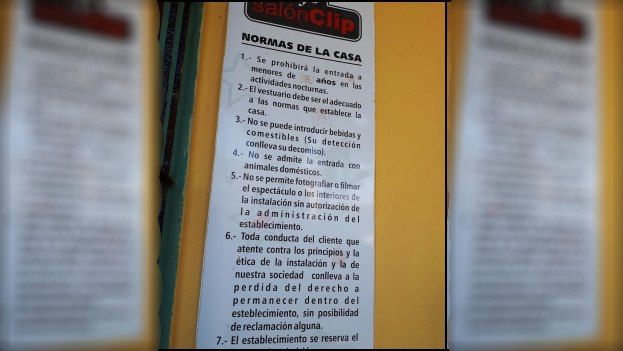
![]() 14ymedio, Yoani Sanchez, Generation 7, Havana, 8 November 2018 – The distance between them is a hundred yards and an abyss. The restaurant in the mansion at 3rd and 8th in Havana’s Miramar district is very close to a place privately run by self-employed workers. Both serve food, both are located in beautiful buildings with columns and arches, but the differences are so profound they might be two different universes. The first is under state management and the second is private, a word that the authorities avoid mentioning.
14ymedio, Yoani Sanchez, Generation 7, Havana, 8 November 2018 – The distance between them is a hundred yards and an abyss. The restaurant in the mansion at 3rd and 8th in Havana’s Miramar district is very close to a place privately run by self-employed workers. Both serve food, both are located in beautiful buildings with columns and arches, but the differences are so profound they might be two different universes. The first is under state management and the second is private, a word that the authorities avoid mentioning.
In the Cuba where I was born and grew up everything was state-owned. The snack bars, the pizzerias, the newspaper kiosks and the funeral homes. Most of those places are still administered by the government sphere; they are socialist businesses that have not demonstrated a very efficient management. But in the field of gastronomy there has been a significant and positive change in recent years. In this field, where the Ministry of Internal Commerce once ruled, it is now the self-employed who are leading the sector.
On this Island the fossilized remains of the Soviet era coexist with businesses that could be competitive in New York, Berlin or Madrid. Back-to-back are state services unable to adapt to the new demands of their customers, and private ones trying to stay afloat despite the high taxes, the absence of wholesale markets, and the ill-will professed by Communist Party bureaucrats.
The collapse of the state company is evident, with all its harshness, in the mansion at 3rd and 8th Streets in Miramar, where a woman jingles some coins outside the bathroom: a gesture to demand tips from the customers who use the stinking cubicle, lacking toilet paper and water. Half the dishes listed on the menu are unavailable, an absence the waitress justifies by the lack of chicken and pizzas. There are no napkins on the tables and in the kitchen five employees vegetate while talking loudly.
The stately patio, with its palms and ferns, is occupied by a metal container that serves as a storeroom and the plants in their stone beds show symptoms of neglect. A piece of paper stuck on a door announces that in the room on an upper floor where videos are shown there are currently no films. The tablecloths are splashed here and there with spilled food and on the TV set over the tables a horror movie is showing images of disemboweled people while the customers sink their teeth into hamburgers.
Just when the customers think it can’t get any worse, the administrators organize a “lightening meeting” with the cooks and servers which paralyzes service and causes a crowd to pile up at the bar. Some, annoyed by the long wait, the missing menu items and the bland dishes, decide to cross the sidewalk and patronize the paladar (private restaurant) offering Spanish tapas. The walk between yesterday’s Cuba and tomorrow’s is a journey between a failed model and another one, possible and desired.
“Everything on the menu is available,” the waiter states proudly to the incredulous customers who have escaped the state premises. No one is able to explain very well how the private restaurant manages to maintain a supply of pork, beef and fish in a country where, in the last year, shortages have worsened, but everyone knows that some of the ingredients travel in the suitcases of innumerable passengers and others come from the black market. “Do you want your paella with seafood, rabbit or vegetables?” asks the waiter. Two tourists take pictures in front of a poster of bulls and another dares to ask for a vegan dish that arrives in a few minutes: varied and without traces of animal protein.
I fear that the mansion at 3rd and 8th may have many years ahead of it, offering bad cooking, the worse service, and the poor flavors that flow from its cauldrons. Meanwhile, the nearby paladar does not know if it will survive, because it has exposed the mammoth futility of a whole system. For this it may pay dearly.
_______________________
The 14ymedio team is committed to serious journalism that reflects the reality of deep Cuba. Thank you for joining us on this long road. We invite you to continue supporting us, but this time by becoming a member of 14ymedio. Together we can continue to transform journalism in Cuba.
